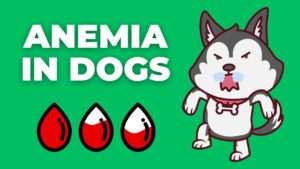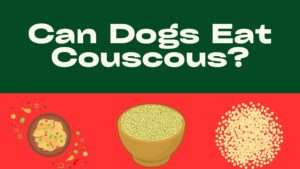When it comes to our furry friends, we often find ourselves questioning what’s safe for them to eat.
Kiwifruit, with its vibrant green flesh and tangy flavor, is a delightful treat for humans.
But can our canine companions enjoy this exotic fruit as well?
Let’s delve into the world of kiwifruit and its compatibility with our beloved dogs.
Contents Overview
What is Kiwifruit
Kiwifruit, also known as Chinese gooseberry, is a small, green fruit with fuzzy brown skin and vibrant green flesh.
It is rich in essential nutrients like vitamin C, vitamin K, and fiber, offering various health benefits. With its tangy and sweet flavor, kiwifruit is enjoyed fresh or used in various culinary creations, from smoothies to desserts.
Nutritional Value of Kiwifruit
Kiwifruit packs a punch of nutrients in every bite. It’s loaded with vitamin C, providing more than the recommended daily intake in just one fruit.
Additionally, it contains vitamin K, vitamin E, and dietary fiber, promoting overall health and digestion. With a low-calorie count, kiwifruit is a guilt-free snack option.
Its antioxidant properties contribute to fighting off harmful free radicals in the body. Incorporating kiwifruit into your diet adds a burst of flavor along with a plethora of nutritional benefits.
Can Dogs Eat Kiwifruit Safe?
Yes, dogs can safely eat kiwifruit in moderation. Kiwifruit offers nutritional benefits to dogs, including being rich in vitamin C, fiber, and antioxidants, which can support their immune system and digestive health.
However, it’s crucial to remove the skin and seeds before feeding kiwifruit to your dog to prevent choking hazards or intestinal blockages.
Additionally, some dogs may be allergic to kiwifruit, so it’s essential to monitor them for any adverse reactions after consumption.
Overall, when served in moderation and with proper precautions, kiwifruit can be a safe and enjoyable treat for your canine companion.
Potential Benefits of Kiwifruit to Dogs
1- Boosts Immune System
The high vitamin C content in kiwifruit can help bolster your dog’s immune system, making them more resilient to infections and illnesses.
Stronger immunity means fewer trips to the vet and a happier, healthier pup.
2- Aids Digestion
The fiber in kiwifruit promotes healthy digestion in dogs, preventing constipation and supporting regular bowel movements.
Improved digestion can alleviate gastrointestinal issues and contribute to overall well-being.
3- Supports Oral Health
Chewing on kiwifruit can help remove plaque and tartar from your dog’s teeth, promoting dental health.
The natural acids in kiwifruit may also help prevent the buildup of harmful bacteria in the mouth.
Potential Risks and Precautions of Feeding Kiwifruit to Dogs
In this section, we’ll explore the possible risks associated with feeding kiwifruit to dogs and discuss important precautions to keep your canine companion safe and healthy.
1- Risks Associated with Feeding Kiwifruit to Dogs
Allergic Reactions:
Just like humans, dogs can develop allergies to certain foods, including kiwifruit. Allergic reactions can manifest as itching, hives, swelling, vomiting, or diarrhea.
Some dogs may be more sensitive to the proteins or compounds present in kiwifruit, leading to adverse reactions.
Gastrointestinal Upset:
The high fiber content in kiwifruit can be beneficial for digestion in moderate amounts. However, feeding too much kiwifruit or introducing it too quickly into your dog’s diet can cause gastrointestinal upset.
Symptoms of gastrointestinal upset may include diarrhea, abdominal pain, gas, or bloating.
Choking Hazard:
Kiwifruit contains small seeds that can pose a choking hazard to dogs, especially small breeds or those prone to gulping their food without chewing properly.
Ingesting kiwifruit seeds can lead to choking or intestinal blockages, requiring immediate veterinary attention.
2- Precautions When Feeding Kiwifruit to Dogs
Start Slowly:
Introduce kiwifruit to your dog’s diet gradually, starting with small amounts to gauge their tolerance and potential allergic reactions.
Monitor your dog closely for any signs of adverse reactions, and discontinue feeding kiwifruit if any symptoms occur.
Remove Skin and Seeds:
Before offering kiwifruit to your dog, peel off the skin and remove any seeds to prevent choking hazards and digestive issues.
Serve only the flesh of the kiwifruit in small, manageable pieces to reduce the risk of complications.
Monitor Portion Sizes:
Limit the quantity of kiwifruit you feed to your dog, offering it as an occasional treat rather than a staple in their diet.
Excessive consumption of kiwifruit can lead to an imbalance in their diet and potential health issues.
Consult with Your Veterinarian:
Before introducing kiwifruit or any new food to your dog’s diet, consult with your veterinarian to ensure it is safe and appropriate for your dog’s individual needs and health status.
Your veterinarian can provide personalized guidance based on factors such as your dog’s age, breed, weight, and any existing health conditions.
Safe Ways to Feed Kiwifruit to Dogs
- Remove Skin and Seeds:
- Before offering kiwifruit to your dog, thoroughly wash the fruit and remove the skin. The fuzzy skin can be challenging for dogs to digest and may cause gastrointestinal discomfort.
- Additionally, carefully scoop out any seeds from the kiwifruit flesh, as they can pose a choking hazard and may lead to intestinal blockages if ingested.
- Cut into Bite-Sized Pieces:
- Once you’ve peeled the kiwifruit and removed the seeds, cut the flesh into small, manageable pieces. This helps prevent choking and makes it easier for your dog to chew and digest.
- Aim for bite-sized pieces that are appropriate for your dog’s size and chewing habits, ensuring they can enjoy the fruit safely.
- Feed in Moderation:
- While kiwifruit can offer several health benefits to dogs, it’s essential to feed it in moderation. Treat kiwifruit as an occasional snack or reward rather than a regular part of your dog’s diet.
- Excessive consumption of kiwifruit can lead to gastrointestinal upset or contribute to an imbalance in your dog’s overall nutrition.
- Monitor for Allergic Reactions:
- Keep a close eye on your dog after introducing kiwifruit to their diet, and watch for any signs of allergic reactions or adverse effects.
- Symptoms of allergies may include itching, hives, swelling, vomiting, or diarrhea. If you notice any such symptoms, discontinue feeding kiwifruit and consult with your veterinarian.
- Consider Frozen or Pureed Options:
- If your dog enjoys frozen treats, consider freezing small pieces of kiwifruit for a refreshing summertime snack.
- You can also puree kiwifruit and mix it with other dog-friendly fruits or yogurt to create a tasty and nutritious treat that’s easy for your dog to eat.
- Consult with Your Veterinarian:
- Before incorporating kiwifruit into your dog’s diet, it’s always a good idea to consult with your veterinarian. They can offer personalized guidance based on your dog’s individual health needs and dietary requirements.
- Your veterinarian can also help you determine the appropriate portion sizes and frequency of feeding kiwifruit to your dog.
When to Avoid Kiwifruit to Dog
- Allergic Reactions: Avoid feeding kiwifruit to your dog if they have a known allergy to the fruit or similar foods.
- Digestive Sensitivity: If your dog has a history of digestive issues or sensitivity to new foods, it may be best to avoid feeding them kiwifruit.
- Diabetes: Due to its natural sugar content, kiwifruit should be avoided for dogs with diabetes or those at risk of weight gain.
- Choking Hazard: If your dog tends to gulp food without chewing properly or has a tendency to choke, avoid feeding them kiwifruit to prevent choking hazards from the seeds.
- Underlying Health Conditions: If your dog has underlying health conditions or is on specific medications, consult with your veterinarian before introducing kiwifruit to their diet to ensure it’s safe for them.
Safe and Suitable Alternatives of Kiwifruit for Dogs
If kiwifruit isn’t the right fit for your furry friend, there are plenty of safe and suitable alternatives to consider.
Apples, without seeds or cores, offer a crunchy texture and are packed with vitamins and fiber.
Blueberries are another excellent option, rich in antioxidants and easy for dogs to eat.
Bananas are a favorite among many dogs, providing potassium and energy-boosting carbohydrates.
Carrots are not only crunchy and low in calories but also great for dental health.
Additionally, watermelon, strawberries, and pumpkin can all be served in moderation to add variety to your dog’s diet while keeping them happy and healthy.
Bottom Line
In conclusion, while kiwifruit can provide some nutritional benefits to dogs, it’s essential to exercise caution and moderation.
Before introducing any new food into your dog’s diet, consult with your veterinarian to ensure it’s safe for your furry friend.
With proper precautions, you can treat your dog to a tasty bite of kiwifruit now and then, enriching their diet while keeping them healthy and happy.




































+ There are no comments
Add yours